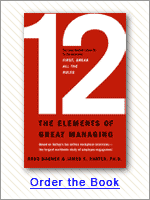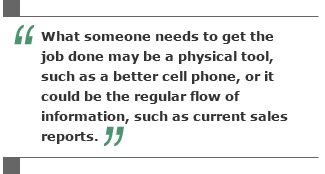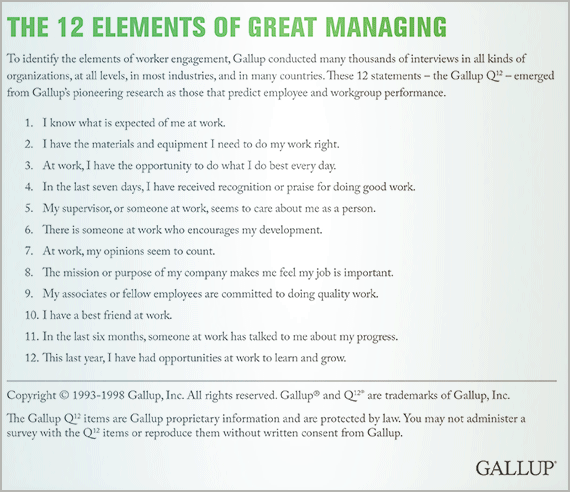On February 21, Northwest Airlines flight 779 from Minneapolis to Las Vegas had an unlucky day. Originally scheduled to depart at 2:26 p.m., it was delayed until 4:10 p.m. by the late arrival of the assigned aircraft. Once the plane arrived, a gate agent told passengers that the plane had a problem with its ventilation and de-icing systems. The employees cautioned customers that the successively later times posted on the screen -- 4:45, 5:15, 5:45 -- were not estimated departures, but just "the time when we'll get our next update." Passengers were becoming restless, grumbling about hundred-dollar show tickets that were becoming worthless in their pockets.
 |
A little after 6:00, the gate agent announced that the ventilation system was fixed, but the de-icer was still broken. With no ice hazard forecast on the way to Nevada, "We, as an airline, are declaring the plane good and ready to go," said the agent. But, he added, "The pilot is refusing the aircraft."
Passengers groaned. "I'll fly the plane," said one. "If the pilot doesn't want to fly it, why should I want to ride in it?" said another.
A new time was posted on the screen: 8:00 p.m. Passengers -- who assumed Northwest was trying to get a new plane or fix the one at the gate -- were now informed that instead, Northwest was working "to get another pilot."
The situation would have been even worse without the reassuring demeanor of the gate agent -- a tall, calm, middle-aged man whose voice projected empathy. He nodded, listened, advised, and explained as groups of jittery passengers stood around the podium. But as good as he was in the crisis, he could not take care of his customers without a departing flight. And clearly, the pilot felt he could not do his job without a plane he regarded as ready to go.
Essential to getting the job done
On this day, Flight 779 and the employees working on it ran headlong into the Second Element of Great Managing: having the materials and equipment they needed to do their jobs right. (See graphic "The 12 Elements of Great Managing.") Without the right tools, a group's productivity can't get off the ground.
When Gallup researchers analyzed hundreds of work dimensions in search of those most predictive of success, it was no surprise that materials and equipment showed up as fundamental. While many of the other 12 Elements, such as talking with employees about their progress, are primarily psychological in nature, the Second Element is both psychological and excruciatingly practical. Workgroups that don't have the right supplies can't produce. Universally, teams that produce have what they need to get the job done.
 |
The obstacles may not always be as apparent as a broken airplane. What someone needs to get the job done may be a physical tool, such as a better cell phone, or it could be the regular flow of information, such as current sales reports or customer feedback. Sometimes there's a fine line between what someone needs and what someone wants. Managers might consider a particular item a luxury or inconsequential, but the person who spends 40 hours a week on a task might find great usefulness in that same item.
"No one uses pencils anymore, but I use them all the time," says one editor. "I went to my manager and asked, 'Could I get a nice electric pencil sharpener?' And she said, 'Sure.' It only cost $10, but it makes a big difference to me."
"Give me what I need to produce"
People usually join organizations about which they are excited. And after they join the organization, they have a honeymoon period of about six months, on average, during which they are generally highly engaged in their work. They get a lot of attention during this time, and they haven't had enough negative experiences to become disengaged.
The sharpest drop in engagement comes after that first half-year. But the downward slope is not consistent across all 12 Elements. The drop is steepest on the Second Element, where the amount of positivity is cut approximately in half. The average worker joins with high expectations, and when she is not supplied with the tools she needs to reach her high ideals, she becomes disenchanted. The best managers are adept at avoiding the transition from honeymoon to divorce.
The encouraging news behind the trend is that most people want to do their jobs well. They want to be productive. If they were motivated to get away with doing as little as possible, why would they care that a lack of information, support, tools, or other supplies reduced their output? Why would they quit their jobs more often when this aspect is lacking? Instead, most workers say in their direct responses and in their actions, "Give me what I need to produce, and I will produce."
 |
One loading dock manager avoids Second Element problems by obsessing over the working order of his employees' chief tool -- the forklift. "It's got to be in tip-top shape," he says. "We have a company that sends a mechanic in here frequently. They are very good at communicating with the guys. They know who drives what forklift, and they want to talk to that guy to find out just how it is running. Some guys like a hard pedal; some guys like a mushy pedal. He will adjust these things to make these guys comfortable. They're on these forklifts eight, ten, twelve hours a day, and given that a forklift has no suspension, the least we can do is make it operate the way the guy wants -- to make him happy."
Workgroups that have the most effective management of materials and equipment average higher customer engagement and higher productivity than their peers. They also have significantly better safety records, and their employees are less likely to flee to other organizations. For example, managers with bottom-quartile Second Element scores average 20% to 40% higher employee attrition than top-quartile managers, representing millions of dollars in direct and indirect turnover costs.
Yet in the Gallup global database of 10 million employee and manager interviews, less than one-third of employees strongly agree that they have the materials and equipment they need to do their work right. When the right materials and equipment are missing, it not only takes a toll on production, but also on the mental health of the workers.
Of the 12 Elements, the Second Element is the strongest indicator of job stress. The data show that there are few things more frustrating than wanting to make a difference at work and being held back by inadequate resources. The Second Element is a prerequisite to any higher connection with the mission of the company. "The literature on workplace hassles and frustration suggest that such performance obstacles can erode the meaningfulness of even the most inspiring of jobs," write researchers Michael G. Pratt and Blake E. Ashforth.
The perils of job stress
Nearly one-third of workers in the United States say stress on the job caused them to behave poorly with family or friends in the prior month. The figure is unacceptably high in other countries as well: 39% in Brazil, 33% in Canada, and 25% in Japan.
The materials and equipment issue looms large over the problem of bringing work stress home. A full two-thirds of American workers who say they don't have adequate supplies also report bringing job stress home with them. Among those who say they have what they need to do their work, only one in four reports being grumpy at home.
What's more, the breakdown of the Second Element for Northwest Airline employees even affected the passengers of Flight 779 -- ultimately making them grumpy too. After five hours of wrangling, passengers were finally sent on their way. An incoming plane was reassigned and used to get them to Las Vegas. As passengers boarded the plane, the gate agent announced that they would be receiving an apology coupon on the other end. "We hope your luck in Las Vegas is better than it was today at our airport."
 |